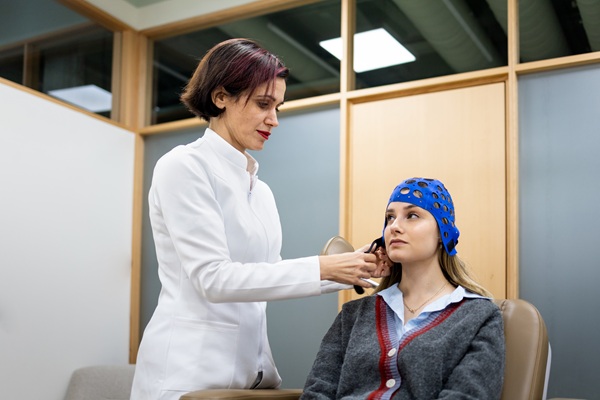Examples of Mood Disorders

Mood disorders are a classification of mental health conditions that involve the patient’s mood and emotional state. There are many different types of mood disorders, including major depressive disorder and bipolar disorder (the two most common mood disorders).
Different types of mood disorders
Since each type of mood disorder exhibits unique symptoms and is treated in a unique way, it is helpful to become familiar with each of the more common types. If you or a loved one shows signs that indicate any of the following mood disorders may exist, then it is important to see a psychiatrist for diagnosis and treatment.
Major depressive disorder (MDD)
Major depressive disorder, also called MDD or clinical depression, is the most common mood disorder, affecting more than three million people in the U.S. each year. Major depressive disorder can be defined as a prolonged feeling of sadness or lack of interest. Generally, major depressive disorder is diagnosed when symptoms of depression exist for more than a two week period of time.
Bipolar disorder
Bipolar disorder involves episodes of severe mood swings, ranging from manic episodes of excessive energy and excitement to depression, which involves low moments and feelings of sadness, loneliness and a lack of energy and motivation. Bipolar disorder treatment typically involves psychotherapy (such as cognitive-behavioral therapy) and oral antidepressants and mood stabilizers. If ignored, bipolar disorder can become serious and lead to symptoms such as suicidal ideation.
Dysthymia
Dysthymia, also called persistent depressive disorder, is a mood disorder that involves being in a depressed state for more than two years. It is typically milder than major depressive disorder, although the symptoms are typically more chronic. To be diagnosed with dysthymia, patients typically must have depression and two related symptoms (hopelessness, loneliness, lack of motivation, etc.) that exist for a prolonged period of time with little to no relief.
Substance-induced mood disorder
Substance-induced mood disorder refers to depression (or another type of mood disorder) that develops during or after withdrawal from drug abuse. This is an important distinction for psychiatrists to make as determining the exact form and cause of the depression plays a role in which treatment option is the most appropriate and the most effective in long-term symptom relief.
Seasonal affective disorder (SAD)
Seasonal affective disorder, also called seasonal depression, is a unique mood disorder in the sense that many are unfamiliar with, but it affects many people in the U.S. as well as in other countries. This type of mood disorder can be described as depression that exists seasonally. Most commonly, seasonal affective disorder develops during the time of the year where there is less sunshine.
Find relief from your symptoms with our psychiatry team
If you would like to schedule a visit with a psychiatrist, then call us today. We can arrange a convenient time for you to come in and discuss your symptoms. During the first visit, we are glad to answer your questions and put together a treatment plan to help you deal with the mental health concerns you are experiencing.
Get more information here: https://futurepsychsolutions.com or call Future Psych Solutions at (803) 335-5232
Check out what others are saying about our services on Yelp: Mood Disorder in Columbia, SC.
Recent Posts
Mental health plays a critical role in overall well-being, influencing thought patterns, emotional stability, and behavior. For those experiencing persistent challenges, a formal diagnosis can provide clarity and a structured approach to healing. With guidance from a psychiatrist, individuals can better understand their condition and begin a path toward long-term mental wellness.A mental health diagnosis…
Are you looking for a TMS doctor? A TMS doctor is one that offers Transcranial magnetic stimulation to treat patients with major depressive disorder, which is also called MDD or clinical depression. Every TMS doctor utilizes their own method of treatment and many practices under other titles such as that of a psychiatrist. Learning more…
Post-traumatic stress disorder (PTSD) is a mental health condition that can develop after experiencing or witnessing a traumatic event. PTSD treatment aims to reduce symptoms and help people function better in their daily lives. It also focuses on improving their overall health and well-being. PTSD often causes anxiety, flashbacks, and emotional distress, making effective treatment…
Everyone experiences occasional anxiety, but an anxiety disorder involves persistent, excessive worry and physical symptoms that can disrupt daily routines, relationships, and overall well-being. If left untreated, these symptoms can intensify, impacting mental and physical health. Seeking help from a psychiatrist can be a significant first step toward effectively managing anxiety disorder symptoms and getting…


